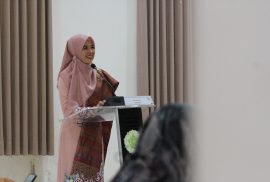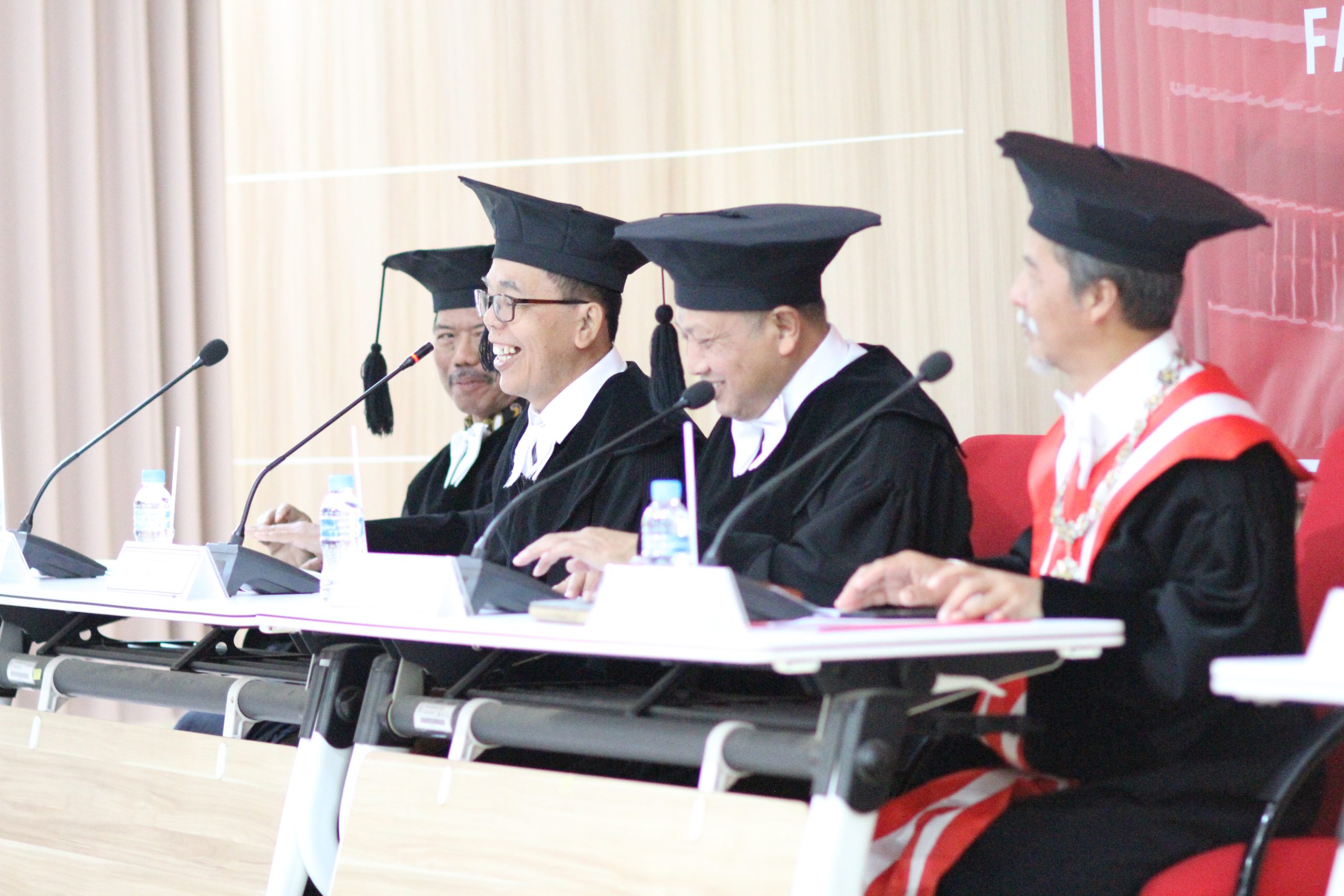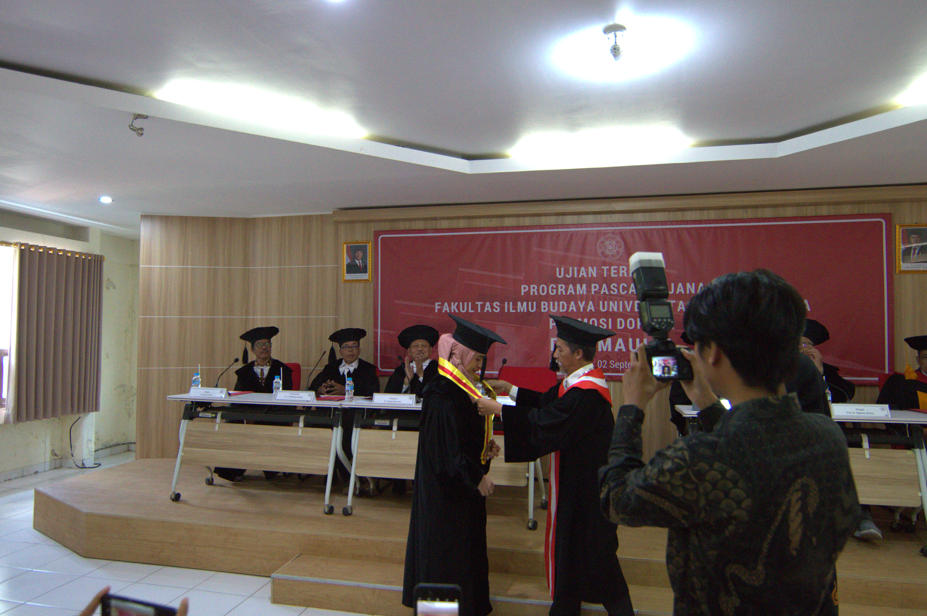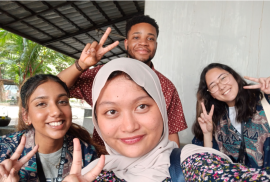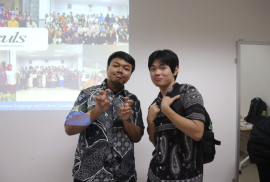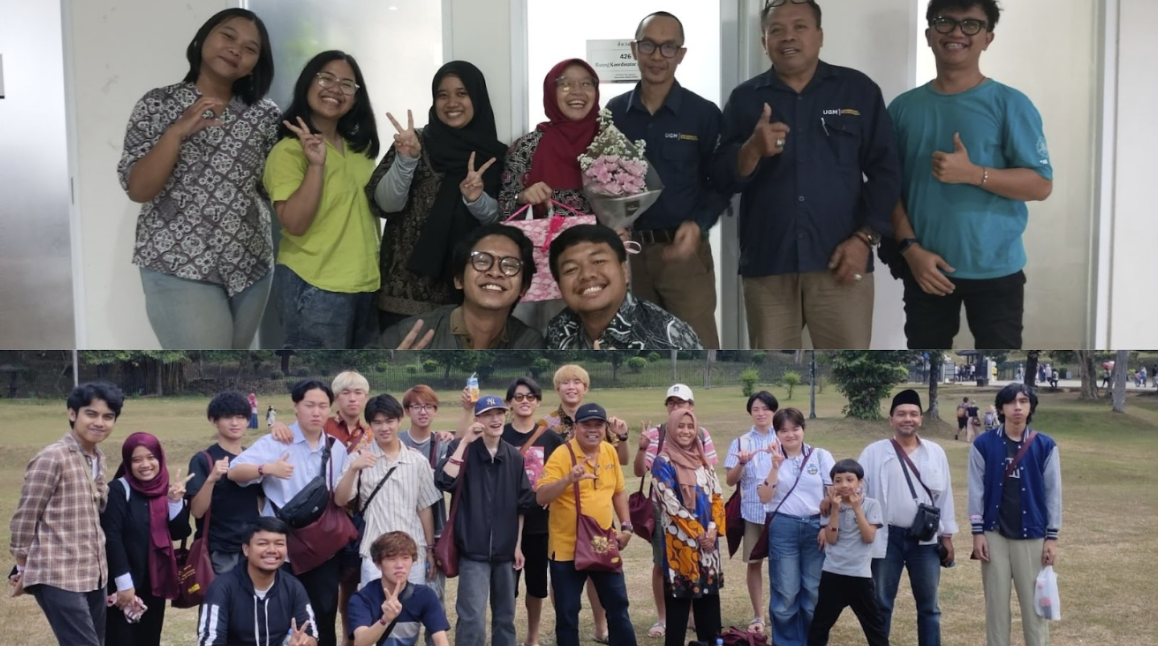Yogyakarta, September 10, 2025 – The Faculty of Cultural Sciences, Universitas Gadjah Mada (FIB UGM), has once again produced significant research in the field of linguistics. Dini Maulia, a doctoral student in Linguistics under the Graduate Program of Humanities, successfully defended her dissertation entitled “A Contrastive Analysis of Negation in Japanese and Indonesian.”
In her dissertation, Dini was supervised by Dr. Tatang Hariri, M.A. as the main advisor, and Dr. Y. Tri Mastoyo, M.Hum. as the co-advisor. The study aimed to compare the negation systems in Japanese and Indonesian using a theoretical contrastive analysis framework, drawing on the works of Fisiak (1980), Ke (2019), Krzeszowski (1990), and Zabrocki (1980).
The findings revealed that negation markers can be classified into two types: affixal negation and sentential negation. Furthermore, based on X-bar theory, it was found that affixal negation in both Japanese and Indonesian occupies the modifier node that describes a noun.
Through contrastive analysis, the study also identified four main factors influencing the similarities and differences in the negation systems of the two languages, namely:
- Negation as a universal grammatical feature,
- Language typology,
- Categories of sentential negation, and
- Tense systems.
This research not only contributes to theoretical linguistic studies but also aligns with the goals of the Sustainable Development Goals (SDGs), particularly SDG 4 (Quality Education), through the advancement of cross-cultural linguistic knowledge, and SDG 10 (Reduced Inequalities), by fostering intercultural and interlingual understanding.
With these findings, the study is expected to build a more comprehensive model of contrastive language analysis, enriching linguistic scholarship while strengthening UGM’s role in producing world-class academics.
[Public Relations Office, FIB UGM – Alma Syahwalani]

